DiscoveryCamp and NanoCamp - Annual Report 2023
14 April, 2024
Our annual in-person science camps for Year 12 and Year 13 secondary school students ran in January, with 11 students attending our 14th annual DiscoveryCamp in Christchurch, and a further 11 students taking part in our 13th annual NanoCamp in Palmerston North.
NanoCamp
NanoCamp 2023 was led by Te Kunenga ki Pūrehuroa Massey University-based Associate Investigators Dr Ebu Avci and Dr Emilia Nowak. The NanoCampers studied microscopy imaging, microrobots and silver nanoparticles, manipulated micro-objects with lasers, took a field trip to Herb Farm in Ashurst and heard from current PhD students about science and academic pathways. The camp attendees also enjoyed a busy social programme in the evenings, including bowling, go-karting and trampolining.
The NanoCampers were looked after by a number of MacDiarmid Institute Emerging Scientists Association (MESA) students and postdoctoral researchers, including Ludwig Petters, Martin Allen, Shivangi Chourasia, Kate Andrew, Marco Pandullo and Nick Carlisle. They were also helped by local undergraduate students Joel Bezuidenhout and Yuki Yarita.
NanoCamp has been a brilliant opportunity to explore the incredibly diverse and somewhat hidden world of nanoscience.
My time at Massey University for the MacDiarmid NanoCamp was nothing short of highly educational and extremely fun.
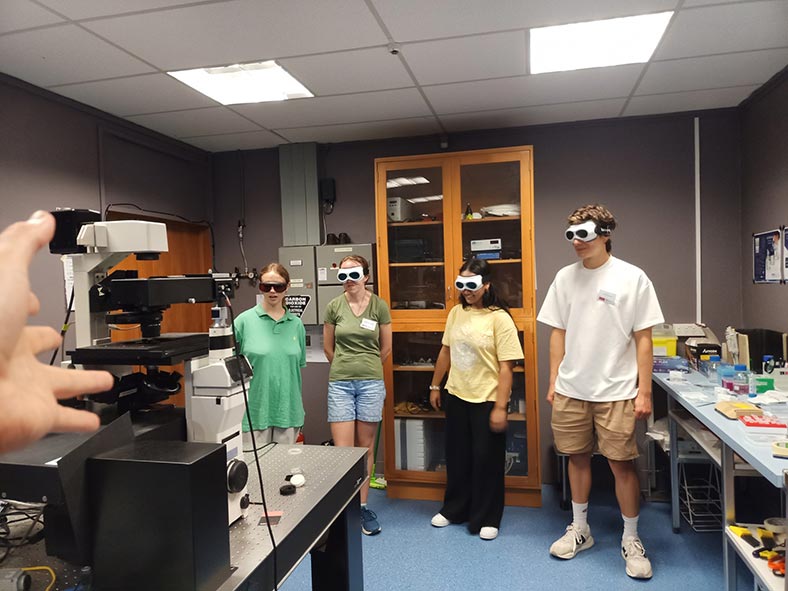
Taking part in NanoCamp was a really inspiring experience for me. After spending five days at camp, taking part in hands-on science sessions, meeting other attendees, and talking to lecturers and postgraduate students, I know I want to follow a career in science.
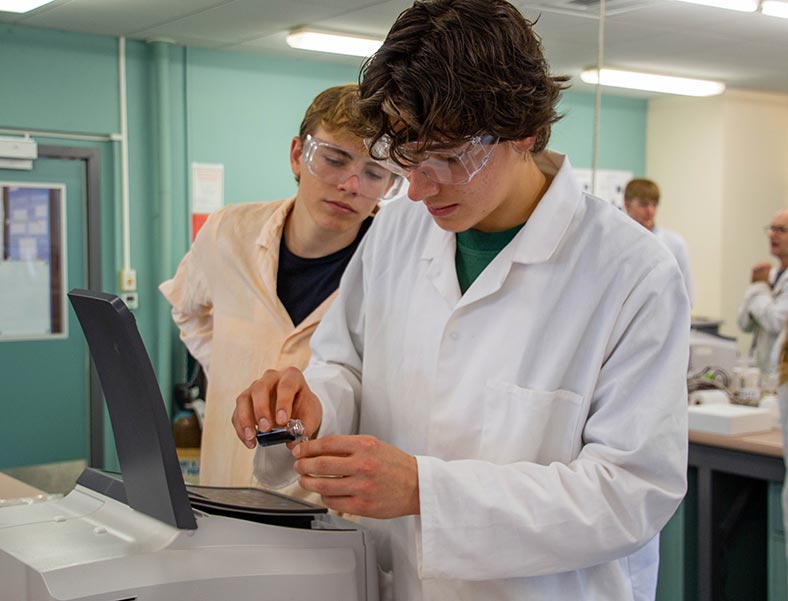
What I will treasure most as I recall the experience, will be the interactions I had with all the awesome people who were involved.
The conversations I had outside of the main science practicals were some of the most valuable moments from NanoCamp.
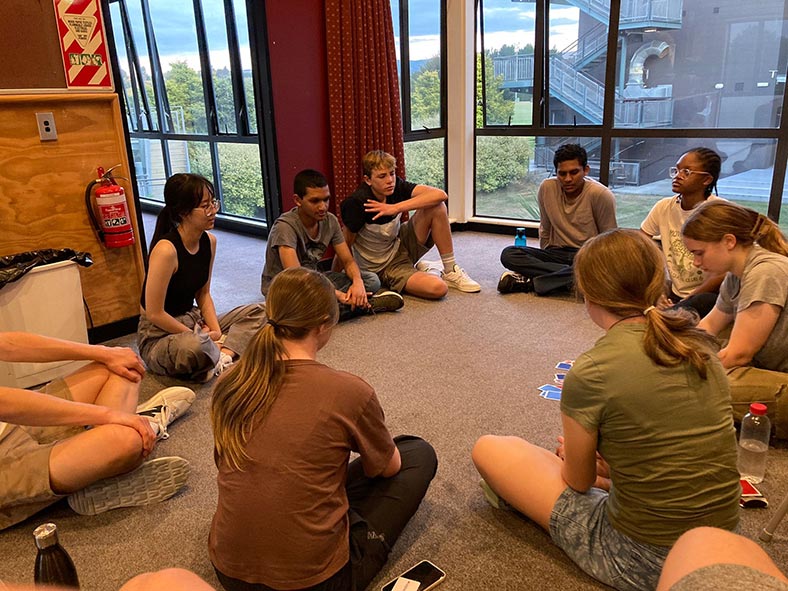
Another part of the Nanocamp that I thoroughly enjoyed was observing university life on campus and witnessing how students at the university work towards their degrees.
My time at NanoCamp allowed me to experience science at a much more practical level than I get to at school.
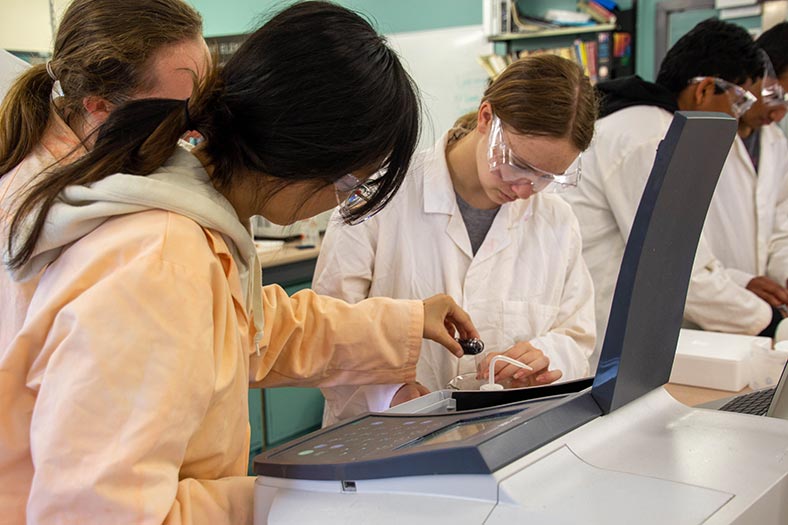
Being able to use all the techniques you learn in school to synthesise aspirin is such a cool thing.
A highlight for me was manipulating micro-objects with a laser.
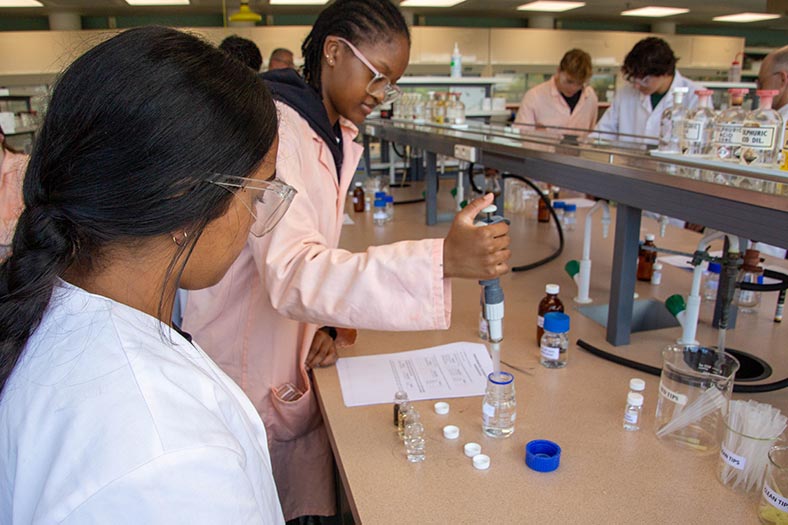
The combination of the great science activities and social events make the experience truly amazing.
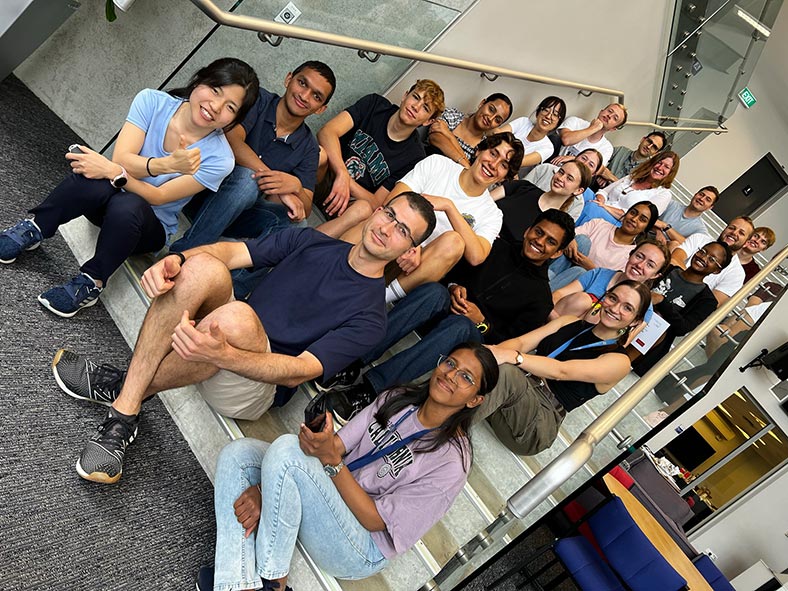
I met a great group of diverse, intelligent and creative postgrad students who were all so welcoming, supportive and willing to answer my questions about university, postgraduate study, and the science industry.
DiscoveryCamp
DiscoveryCamp 2023 was led by Te Whare Wānanga o Waitaha University of Canterbury-based Principal Investigator Professor Martin Allen. The DiscoveryCampers studied nanotechnology, silicon wafer photolithography, water electrolysis (green hydrogen production), dye sensitized solar cells, nano-chemistry, microbiology and microfluidics. They also met with current Māori postgraduate students, research assistants and Discovery Scholars who shared pathways to and through tertiary education.
Team-building evening activities included a learn-to-surf session and escape rooms. Our Stakeholder Relations Partner Iwi Diane Bradshaw and Whakarewarewa research assistant Ringahora Huata also joined the DiscoveryCampers for the week.
The DiscoveryCampers were looked after by MESA PhD students Ryan Adams, Te-Rina King-Hudson, Winter Zakaria, Kate Wislang, Sydnee Koia, Jin Ang and Hamish Trlin, as well as Discovery Scholar Zack Avery.
This camp has inspired me, and I am definitely eager to apply for the University of Canterbury after this trip!
It makes such a difference to be completely surrounded by people who have such a passion for science and are so knowledgeable in their fields.
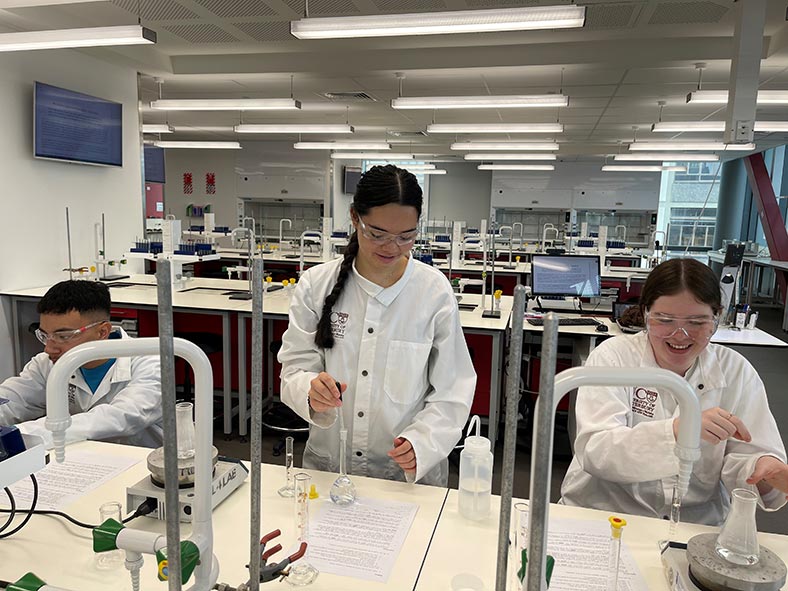
DiscoveryCamp students making 'nanogold' during a lab session, January 2023
Before going to this camp I was contemplating getting an apprenticeship like the rest of my mates, but this camp made me change my mind and it has really made me want to work hard through my final year at high school.
I was around other people of Māori or Pacific Island heritage who also enjoyed learning about science, which created a really encouraging space where there was no doubt that we belong in academic and scientific environments.
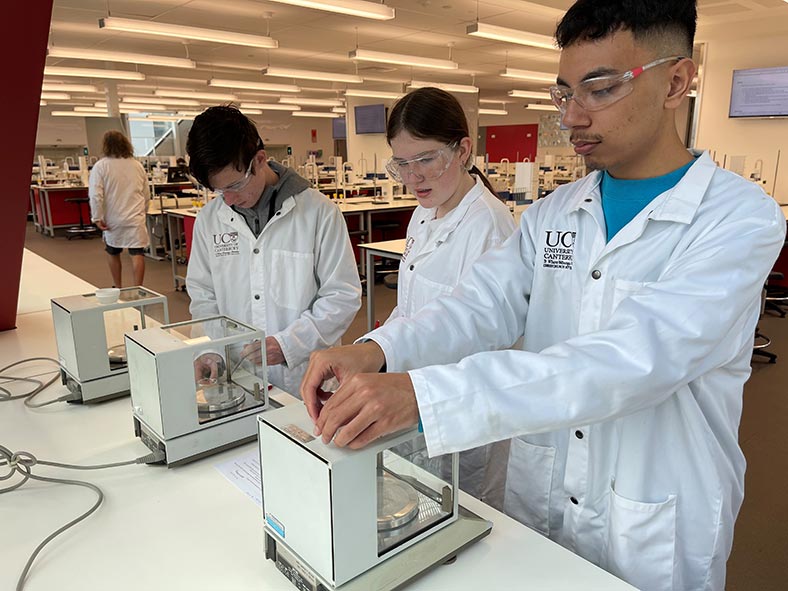
The people on this camp were welcoming of every form of diversity and I came out of it feeling more comfortable and confident in both my heritage and cultural identity, but also my career in STEM.
The escape room was my favourite since it gave me an opportunity to practise my teamwork skills while also mentally challenging me.
My favourite session was the silicon wafer photolithography and learning about how we can see nanostructures using electrons instead of light.
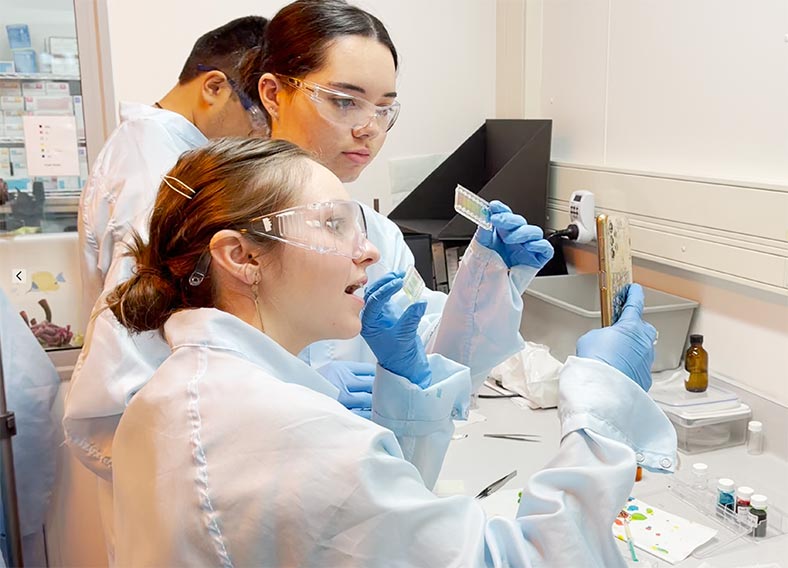
A real strength of the DiscoveryCamp was how well it catered to our age group.
The balance between learning and socialising was essential to keep us engaged and made sure that we had a memorable time.
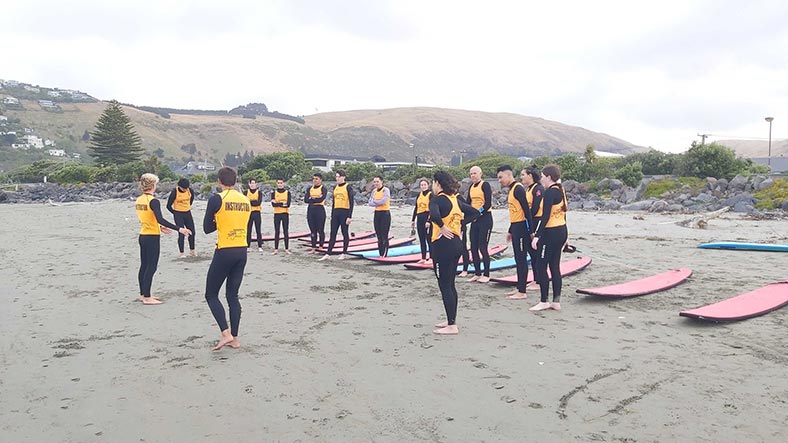
DiscoveryCamp 2023 students attend Surf School at Sumner Beach in Christchurch
One of my favourite aspects was being able to be vulnerable and unapologetically make mistakes that high-achievers and perfectionists would usually be so worried about.
From creating our own solar cells, to imprinting our images on silicon wafers, I was able to experiment with things that were new to me.
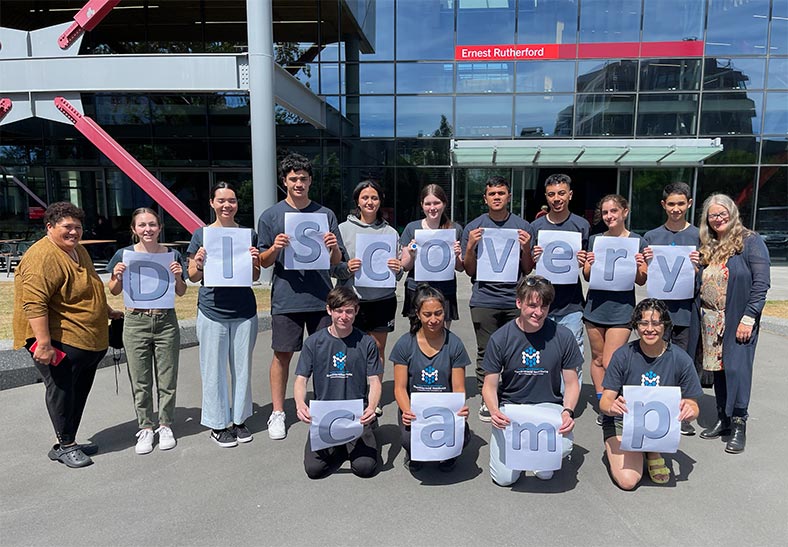
DiscoveryCamp 2023 attendees with Ringahora Huata (far left) and Diane Bradshaw (far right)
We were all from different walks of life and different parts of the country, yet by the end of five days, we had all become a tight-knit group.


